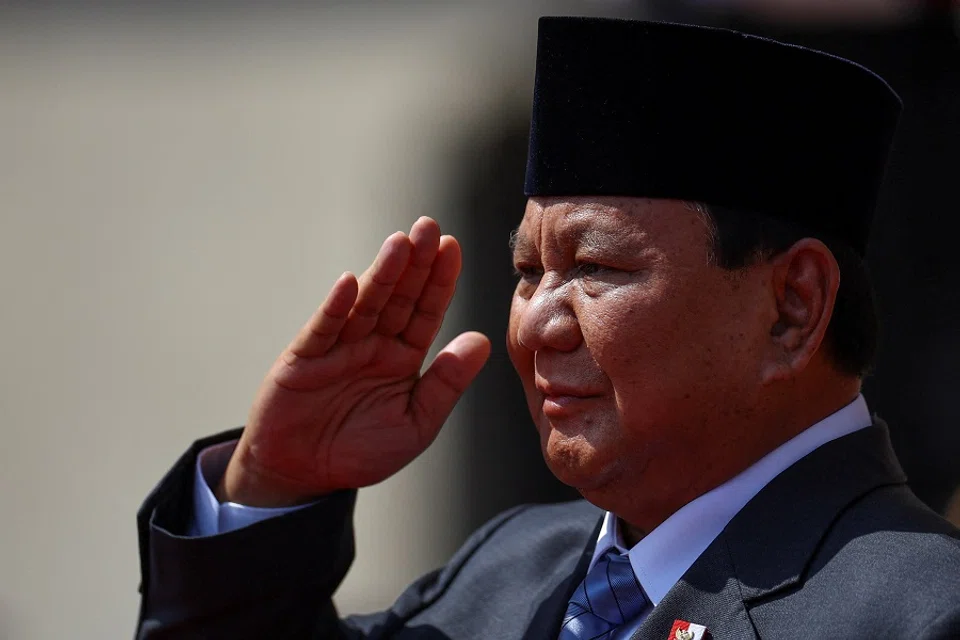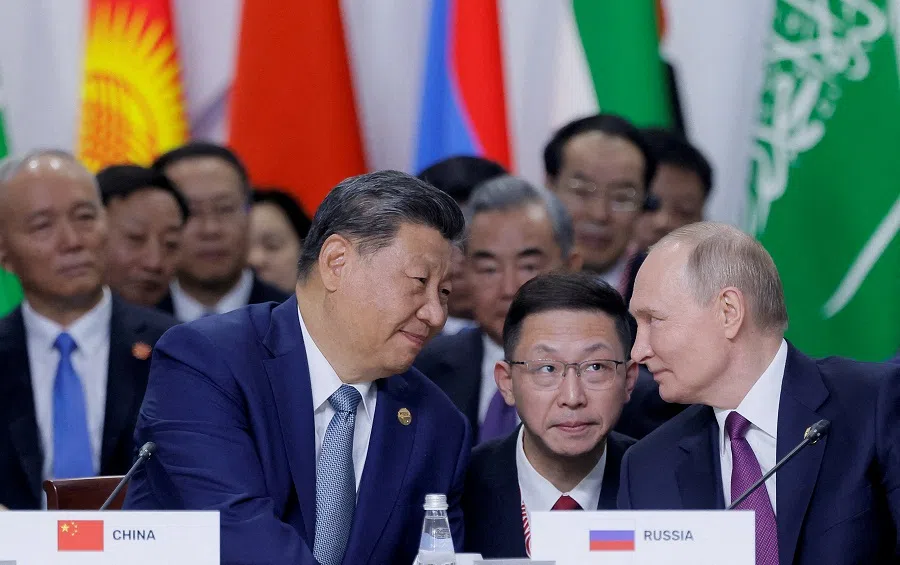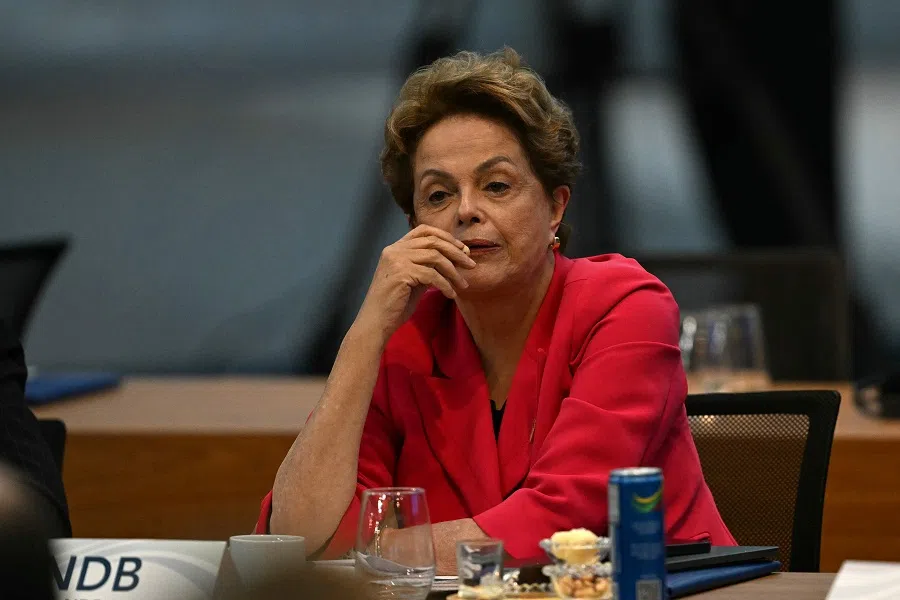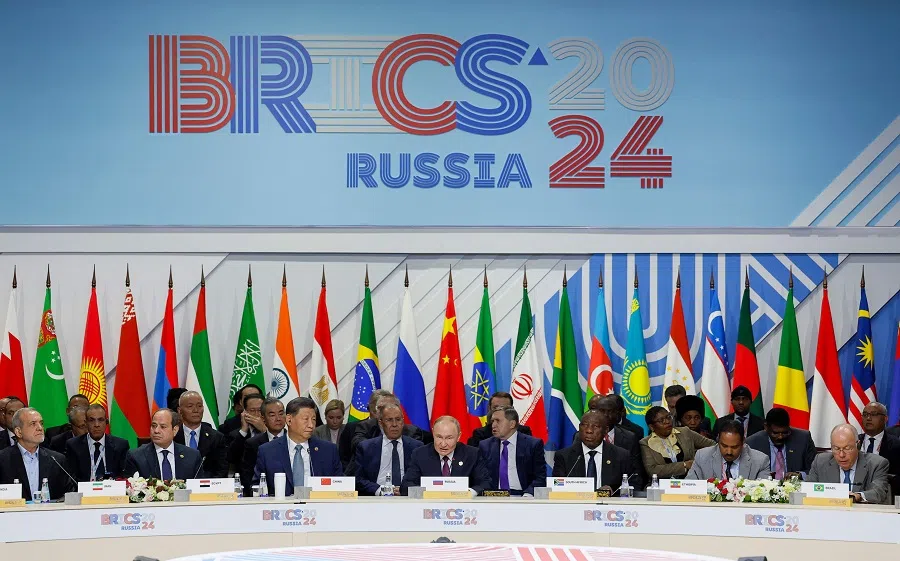Indonesia joins BRICS: A strategic step towards global south empowerment
Brazil has announced that Indonesia is now officially a full member of BRICS. But what are the strategic and economic implications of Indonesia’s new role, for BRICS, the global south and Indonesia itself? Academic Hao Nan evaluates the situation.

Indonesia’s accession to BRICS as a full member, announced by Brazil, the BRICS chairman in 2025, and confirmed by Indonesia’s foreign ministry marks a significant milestone in Indonesia’s country’s foreign policy and global aspirations. This move bolsters BRICS’ status as a key platform for amplifying the voice of the global south, in a world grappling with shifting power dynamics. Indonesia’s membership also strengthens the group’s economic clout while reflecting its broader goal of challenging Western-dominated global institutions like the G7.
Indonesia’s BRICS membership was initially endorsed alongside that of Saudi Arabia, Argentina, Egypt, Ethiopia, the UAE and Iran during the 2023 BRICS Summit in Johannesburg. The latter four countries actually joined the bloc in January 2024; Argentina rejected joining while Saudi Arabia’s membership status remains doubtful. However, Indonesia opted to defer its accession until after the October 2024 presidential inauguration of Prabowo Subianto, who succeeded his political ally, former President Joko Widodo.
While BRICS members officially approved Indonesia’s membership by consensus at the Russia-hosted Kazan Summit, Indonesia was initially designated as one of 13 partner countries in December 2024 under Russia’s chairmanship, alongside two other ASEAN nations, Malaysia and Thailand. The new partner country category was created to cater for the desires of over 40 countries to join the bloc.
Strategically, Indonesia’s entry into BRICS reflects its intent to hedge against great power rivalries and secure greater autonomy in an increasingly multipolar world.
Strategic and economic reasons for Indonesia’s BRICS membership
All these likely hint at Joko Widodo’s intention to align its entry into BRICS with the new Prabowo administration, and ensure that Prabowo can claim credit for this significant diplomatic achievement. In exchange, Prabowo will likely commit to continuing Joko Widodo’s policy lines.
While Prabowo’s administration has inherited the “Golden Indonesia 2045 Vision” from Joko Widodo — which aims to achieve economic prosperity and national resilience by Indonesia’s centennial — Prabowo’s presidency introduces a distinctive shift towards more active foreign policy gestures, appearing poised to adopt a more assertive role on the world stage. With Malaysia and Thailand remaining as BRICS partner countries and Indonesia’s promotion to full membership, Indonesia affirms its leadership role in the ASEAN region and as a prominent player in global affairs.

The phased nature of Indonesia’s BRICS membership process possibly highlights the bloc’s evolving approach to expansion. During Russia’s chairmanship in 2024, Indonesia was designated as a partner country before its full membership was finalised under Brazil’s leadership in 2025.
This model may become a template for future BRICS expansions, allowing the group to integrate new members gradually while ensuring internal cohesion. For Indonesia, this approach likely provided a smoother transition, allowing it to assess the benefits of full membership while navigating the complexities of joining a bloc with diverse and sometimes competing interests.
Likewise, BRICS presents Indonesia with opportunities to deepen trade ties, attract investment and collaborate on infrastructure projects.
Strategically, Indonesia’s entry into BRICS reflects its intent to hedge against great power rivalries and secure greater autonomy in an increasingly multipolar world. As geopolitical tensions rise between the US and China, and with Donald Trump’s 2025 return to the White House injecting unpredictability into global issues, Indonesia’s decision to join BRICS is a pragmatic response.
By aligning with BRICS, Jakarta can strengthen its economic partnerships, especially with China and Russia, while avoiding over-reliance on Western powers. Moreover, as Southeast Asia’s largest economy and a member of the G20, Indonesia brings substantial economic weight, resource reserves and population base to the BRICS bloc, enhancing its global leverage.
Likewise, BRICS presents Indonesia with opportunities to deepen trade ties, attract investment and collaborate on infrastructure projects. The bloc’s New Development Bank (NDB), designed to finance development projects in member states, is an attractive alternative to Western-led financial institutions such as the World Bank and IMF.

For Indonesia, the NDB could become an additional key partner in funding ambitious infrastructure projects, including its ambitious new capital city Nusantara, which has faced financing challenges. Additionally, BRICS’ advocacy for de-dollarisation aligns with Indonesia’s goals of reducing vulnerability to currency fluctuations and strengthening its financial sovereignty.
Critics, however, question whether Indonesia’s BRICS membership might complicate its traditionally non-aligned foreign policy.
Indonesia consolidates its position on the global stage, with implications for the global south
Critics, however, question whether Indonesia’s BRICS membership might complicate its traditionally non-aligned foreign policy. For decades, Indonesia has championed neutrality, exemplified by its leadership in the Non-Aligned Movement (NAM) and ASEAN. Joining a bloc like BRICS, often perceived as a counterweight to Western hegemony, could raise concerns about a perceived tilt towards China and Russia. Additionally, some sceptics argue that the economic benefits of BRICS membership may take time to materialize, as the bloc grapples with internal divisions and varying levels of economic development among its members.
Despite these concerns, Indonesia’s move to join BRICS is a calculated decision that aligns with its long-term vision. The country has consistently sought to assert itself as a leader of the global south, advocating for a more equitable global order. By joining BRICS, Indonesia gains a seat at the table, enabling it to play a greater role in shaping the bloc’s agenda on issues such as climate change, development financing, and digital innovation — all areas where Jakarta seeks greater influence. Moreover, BRICS membership complements Indonesia’s leadership role in ASEAN, positioning the country as a bridge between regional and global forums.
Indonesia’s accession to BRICS also highlights a broader trend: the growing assertiveness of the global south in international politics.

Indonesia’s accession to BRICS also highlights a broader trend: the growing assertiveness of the global south in international politics. As more nations from Asia, Africa, and Latin America join coalitions like BRICS, the world is witnessing a gradual redistribution of power away from traditional Western-dominated institutions. Indonesia’s participation underscores this shift, signalling that the global south is no longer content to be a passive observer in global decision-making.
Ultimately, Indonesia’s BRICS membership represents a pivotal moment for both the country and the bloc. For Indonesia, it is a step towards solidifying its status as a rising middle power with a strong voice in global governance. For BRICS, Indonesia’s inclusion enhances the group’s legitimacy and strengthens its claim to represent the interests of the global south. As the world continues to navigate a landscape of geopolitical uncertainty, Indonesia’s role in BRICS will be closely watched, both as a test of the bloc’s cohesion and as a reflection of the shifting dynamics of global power.





